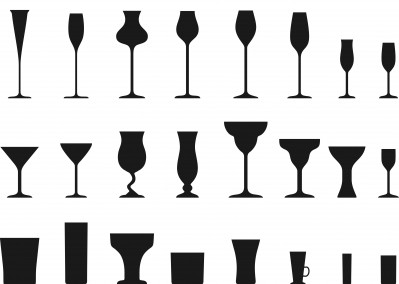Light to moderate alcohol consumption associated with lower risk of heart failure: Study

Published in the International Journal of Cardiology, the study from Norwegian and Swedish universities suggested the risk of heart failure was lowest for people who consumed between three and five drinks a week.
However, participants in the study who reported drinking problems (such as binge drinking) did not benefit from the same reduced risk.
The research was carried out among 60,665 participants in Norway. Researchers suggest that this was an advantageous environment for the study, because the country has a relatively low alcohol consumption and abstinence from alcohol is not socially stigmatized in its culture.
The type of beverage (wine, spirits, beer etc) did not appear to make any difference to the reduced risk of heart failure.
Frequency and volume of alcohol consumption
The study sought to investigate whether light to moderate alcohol consumption was associated with the risk of heart failure, and whether the association was modified by drinking patterns.
Researchers assessed drinking habits twice, 10 years apart, and potential confounders such as cardiovascular risk factors and common chronic disorders were taken into account.
“In this Norwegian population-based cohort, where the average alcohol consumption was low, intake of alcohol was inversely associated with risk of heart failure. More frequent drinking was associated with a lower risk of heart failure after adjusting for the quantity of alcohol intake, but beverage type did not appear to influence the association,” wrote the researchers in the study.
“The lower risk was not evident among otherwise moderate drinkers who reported problem drinking behaviors. The association did not change after extensive adjustment for socio-demographic and cardiovascular risk factors and for common comorbidities, and excluding former drinkers did not substantially influence the strength of the association.”
Norway: a different drinking culture
The relationship between alcohol and heart health has been studied in a number of countries, but these have different drinking patterns and cultures.
Researchers acknowledge the relatively low alcohol consumption in Norway means conclusions on high alcohol intake cannot be made. They also reference a drinking culture in Norway where abstaining from drinking alcohol is more socially accepted than in other countries.
Norway has a strict alcohol policy with high taxation, while extensive education efforts promote alcohol-free lifestyles.
However, the researchers suggest that this may be an advantage for the study, because teetotallers in other Western countries can often represent an unusual group, characterized by low social integration and low social activity.
It points to earlier studies on ischemic heart disease, which have suggested that binge drinking has a detrimental health effect.
“We could not explicitly examine binge drinking in this study, but found that the apparently lower risk of heart failure among moderate drinkers was completely absent among those who indicated drinking problems.”
Given the lack of difference between different beverages and heart failure risk, researchers suggest it is alcohol itself – and not other substances in alcoholic drinks – that is associated with lower heart failure risk. It points to earlier studies which suggest alcohol lowers pulmonary artery pressure.
Another study from the same team was published in September last year, suggesting that alcohol consumption is associated with a lower incidence of acute myocardial infarction (heart attacks).
Source: International Journal of Cardiology, 15 January 2016, doi: 10.1016/j.ijcard.2015.10.179
Light-to-moderate drinking and incident heart failure – the Norwegian HUNT study
Authors: K. Gémes; I. Janszky; S. Ahnve; K. D. László; L. E. Laugsand; L. J. Vatten; K. J. Mukamal.







